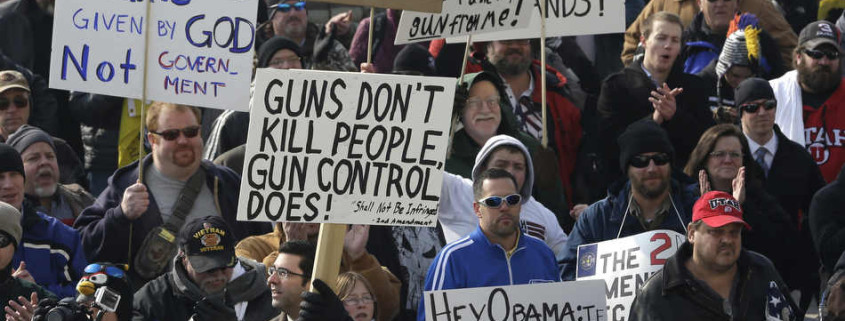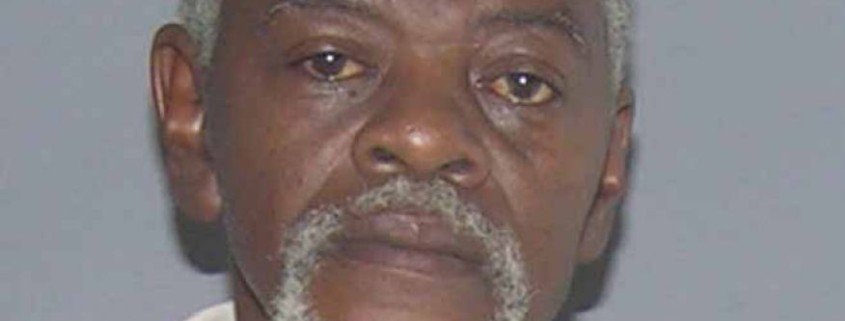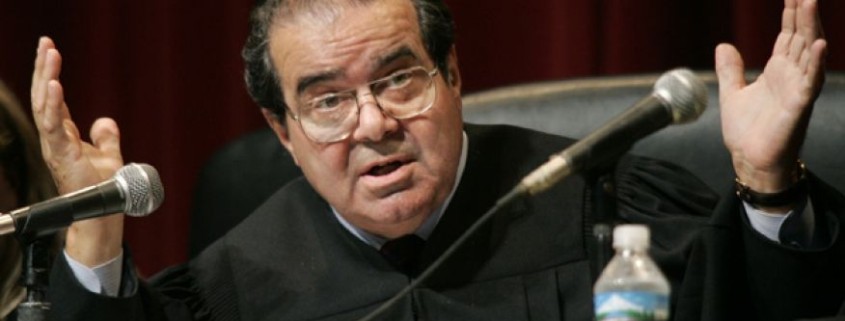I join THE CHIEF JUSTICE’s opinion in full. I write separately to call attention to this Court’s threat to American democracy.
The substance of today’s decree is not of immense personal importance to me. The law can recognize as marriage whatever sexual attachments and living arrangements it wishes, and can accord them favorable civil consequences, from tax treatment to rights of inheritance.
Those civil consequences—and the public approval that conferring the name of marriage evidences—can perhaps have adverse social effects, but no more adverse than the effects of many other controversial laws. So it is not of special importance to me what the law says about marriage. It is of overwhelming importance, however, who it is that rules me. Today’s decree says that my Ruler, and the Ruler of 320 million Americans coast-to-coast, is a majority of the nine lawyers on the Supreme Court. The opinion in these cases is the furthest extension in fact— and the furthest extension one can even imagine—of the Court’s claimed power to create “liberties” that the Constitution and its Amendments neglect to mention. This practice of constitutional revision by an unelected committee of nine, always accompanied (as it is today) by extravagant praise of liberty, robs the People of the most important liberty they asserted in the Declaration of Independence and won in the Revolution of 1776: the freedom to govern themselves.
Until the courts put a stop to it, public debate over same-sex marriage displayed American democracy at its best. Individuals on both sides of the issue passionately, but respectfully, attempted to persuade their fellow citizens to accept their views. Americans considered the arguments and put the question to a vote. The electorates of 11 States, either directly or through their representatives, chose to expand the traditional definition of marriage. Many more decided not to.1 Win or lose, advocates for both sides continued pressing their cases, secure in the knowledge that an electoral loss can be negated by a later electoral win. That is exactly how our system of government is supposed to work.
The Constitution places some constraints on self-rule— constraints adopted by the People themselves when they ratified the Constitution and its Amendments. Forbidden are laws “impairing the Obligation of Contracts,” denying “Full Faith and Credit” to the “public Acts” of other States, prohibiting the free exercise of religion, abridging the freedom of speech, infringing the right to keep and bear arms, authorizing unreasonable searches and seizures, and so forth. Aside from these limitations, those powers “reserved to the States respectively, or to the people” can be exercised as the States or the People desire. These cases ask us to decide whether the Fourteenth Amendment contains a limitation that requires the States to license and recognize marriages between two people of the same sex. Does it remove that issue from the political process?
Of course not. It would be surprising to find a prescription regarding marriage in the Federal Constitution since, as the author of today’s opinion reminded us only two years ago (in an opinion joined by the same Justices who join him today):
“[R]egulation of domestic relations is an area that has long been regarded as a virtually exclusive province of the States.”
“[T]he Federal Government, through our history, has deferred to state-law policy decisions with respect to domestic relations.”
But we need not speculate. When the Fourteenth Amendment was ratified in 1868, every State limited marriage to one man and one woman, and no one doubted the constitutionality of doing so. That resolves these cases. When it comes to determining the meaning of a vague constitutional provision—such as “due process of law” or “equal protection of the laws”—it is unquestionable that the People who ratified that provision did not understand it to prohibit a practice that remained both universal and uncontroversial in the years after ratification. We have no basis for striking down a practice that is not expressly prohibited by the Fourteenth Amendment’s text, and that bears the endorsement of a long tradition of open, widespread, and unchallenged use dating back to the Amendment’s ratification. Since there is no doubt whatever that the People never decided to prohibit the limitation of marriage to opposite-sex couples, the public debate over same-sex marriage must be allowed to continue.
But the Court ends this debate, in an opinion lacking even a thin veneer of law. Buried beneath the mummeries and straining-to-be-memorable passages of the opinion is a candid and startling assertion: No matter what it was the People ratified, the Fourteenth Amendment protects those rights that the Judiciary, in its “reasoned judgment,” thinks the Fourteenth Amendment ought to protect. That is so because “[t]he generations that wrote and ratified the Bill of Rights and the Fourteenth Amendment did not presume to know the extent of freedom in all of its dimensions . . . . ” One would think that sentence would continue: “. . . and therefore they provided for a means by which the People could amend the Constitution,” or perhaps “. . . and therefore they left the creation of additional liberties, such as the freedom to marry someone of the same sex, to the People, through the never-ending process of legislation.” But no. What logically follows, in the majority’s judge-empowering estimation, is: “and so they entrusted to future generations a charter protecting the right of all persons to enjoy liberty as we learn its meaning.” The “we,” needless to say, is the nine of us. “History and tradition guide and discipline [our] inquiry but do not set its outer boundaries.” Thus, rather than focusing on the People’s understanding of “liberty”—at the time of ratification or even today—the majority focuses on four “principles and traditions” that, in the majority’s view, prohibit States from defining marriage as an institution consisting of one man and one woman.
This is a naked judicial claim to legislative—indeed, super-legislative—power; a claim fundamentally at odds with our system of government. Except as limited by a constitutional prohibition agreed to by the People, the States are free to adopt whatever laws they like, even those that offend the esteemed Justices’ “reasoned judgment.” A system of government that makes the People subordinate to a committee of nine unelected lawyers does not deserve to be called a democracy.
Judges are selected precisely for their skill as lawyers; whether they reflect the policy views of a particular constituency is not (or should not be) relevant. Not surprisingly then, the Federal Judiciary is hardly a cross-section of America. Take, for example, this Court, which consists of only nine men and women, all of them successful lawyers who studied at Harvard or Yale Law School. Four of the nine are natives of New York City. Eight of them grew up in east- and west-coast States. Only one hails from the vast expanse in-between. Not a single Southwesterner or even, to tell the truth, a genuine Westerner (California does not count). Not a single evangelical Christian (a group that comprises about one quarter of Americans), or even a Protestant of any denomination. The strikingly unrepresentative character of the body voting on today’s social upheaval would be irrelevant if they were functioning as judges, answering the legal question whether the American people had ever ratified a constitutional provision that was understood to proscribe the traditional definition of marriage. But of course the Justices in today’s majority are not voting on that basis; they say they are not. And to allow the policy question of same-sex marriage to be considered and resolved by a select, patrician, highly unrepresentative panel of nine is to violate a principle even more fundamental than no taxation without representation: no social transformation without representation.
II
But what really astounds is the hubris reflected in today’s judicial Putsch. The five Justices who compose today’s majority are entirely comfortable concluding that every State violated the Constitution for all of the 135 years between the Fourteenth Amendment’s ratification and Massachusetts’ permitting of same-sex marriages in 2003. They have discovered in the Fourteenth Amendment a “fundamental right” overlooked by every person alive at the time of ratification, and almost everyone else in the time since. They see what lesser legal minds— minds like Thomas Cooley, John Marshall Harlan, Oliver Wendell Holmes, Jr., Learned Hand, Louis Brandeis, William Howard Taft, Benjamin Cardozo, Hugo Black, Felix Frankfurter, Robert Jackson, and Henry Friendly— could not. They are certain that the People ratified the Fourteenth Amendment to bestow on them the power to remove questions from the democratic process when that is called for by their “reasoned judgment.” These Justices know that limiting marriage to one man and one woman is contrary to reason; they know that an institution as old as government itself, and accepted by every nation in history until 15 years ago, cannot possibly be supported by anything other than ignorance or bigotry. And they are willing to say that any citizen who does not agree with that, who adheres to what was, until 15 years ago, the unanimous judgment of all generations and all societies, stands against the Constitution.
The opinion is couched in a style that is as pretentious as its content is egotistic. It is one thing for separate concurring or dissenting opinions to contain extravagances, even silly extravagances, of thought and expression; it is something else for the official opinion of the Court to do so. Of course the opinion’s showy profundities are often profoundly incoherent. “The nature of marriage is that, through its enduring bond, two persons together can find other freedoms, such as expression, intimacy, and spirituality.” (Really? Who ever thought that intimacy and spirituality [whatever that means] were freedoms? And if intimacy is, one would think Freedom of Intimacy is abridged rather than expanded by marriage. Ask the nearest hippie. Expression, sure enough, is a freedom, but anyone in a long-lasting marriage will attest that that happy state constricts, rather than expands, what one can prudently say.) Rights, we are told, can “rise . . . from a better informed understanding of how constitutional imperatives define a liberty that remains urgent in our own era.” (Huh? How can a better informed understanding of how constitutional imperatives [whatever that means] define [whatever that means] an urgent liberty [never mind], give birth to a right?) And we are told that, “[i]n any particular case,” either the Equal Protection or Due Process Clause “may be thought to capture the essence of [a] right in a more accurate and comprehensive way,” than the other, “even as the two Clauses may converge in the identification and definition of the right.” (What say? What possible “essence” does substantive due process “capture” in an “accurate and comprehensive way”? It stands for nothing whatever, except those freedoms and entitlements that this Court really likes. And the Equal Protection Clause, as employed today, identifies nothing except a difference in treatment that this Court really dislikes. Hardly a distillation of essence. If the opinion is correct that the two clauses “converge in the identification and definition of [a] right,” that is only because the majority’s likes and dislikes are predictably compatible.) I could go on. The world does not expect logic and precision in poetry or inspirational pop philosophy; it demands them in the law. The stuff contained in today’s opinion has to diminish this Court’s reputation for clear thinking and sober analysis.
* * *
Hubris is sometimes defined as o’erweening pride; and pride, we know, goeth before a fall. The Judiciary is the “least dangerous” of the federal branches because it has “neither Force nor Will, but merely judgment; and must ultimately depend upon the aid of the executive arm” and the States, “even for the efficacy of its judgments.” With each decision of ours that takes from the People a question properly left to them—with each decision that is unabashedly based not on law, but on the “reasoned judgment” of a bare majority of this Court—we move one step closer to being reminded of our impotence.
Original here.










